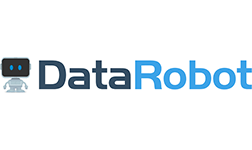
DataRobot Unleashes 9.0 Update and Partner Integrations to Drive AI ROI

(sdecoret/Shutterstock)
DataRobot is capitalizing on the surging popularity of AI with new partner integrations and a significant platform update: DataRobot AI Platform 9.0.
DataRobot’s AI platform is designed to cater to both data scientists and business users. The new release brings AI accelerators, redesigned service offerings, and deeper partner integrations. The company says these upgrades are centered on helping organizations derive measurable value from AI investments, as seeing tangible benefits and ROI from AI initiatives can be an elusive goal for many businesses.
“AI has the potential to enhance every aspect of business transactions and human interactions to improve how we live and work,” said Debanjan Saha, CEO of DataRobot. “Since our founding, we have been 100% focused on helping enterprises realize measurable value from AI by offering an AI lifecycle platform designed to solve business problems, and the applied AI expertise to help customers envision what’s possible – and achieve it.”
 New services include Workbench, a collaborative experimentation experience equipped with DataRobot Notebooks, the data science notebooks the company released in January. With capabilities like integrated data prep for modeling, Workbench allows teams to collaborate over all ML assets in a central location. There are also new services packages meant to help customers find value within 90 days, along with new AI Accelerators which are code-first, modular building blocks and solution templates for specific use cases.
New services include Workbench, a collaborative experimentation experience equipped with DataRobot Notebooks, the data science notebooks the company released in January. With capabilities like integrated data prep for modeling, Workbench allows teams to collaborate over all ML assets in a central location. There are also new services packages meant to help customers find value within 90 days, along with new AI Accelerators which are code-first, modular building blocks and solution templates for specific use cases.
The company has also updated ML Production, its MLOps command center. The tool now includes GitHub Marketplace Action for CI/CD to integrate DataRobot into existing DevOps practices. For tracking the performance of business models, the platform has custom inference metrics and an expanded suite of drift management tools.
DataRobot has also upgraded the compliance and governance capabilities of the 9.0 release to support models built outside of DataRobot with new compliance documentation for external models, MLflow experiment metadata integration, and bias mitigation.
 Reflecting the red-hot popularity of generative AI tools like ChatGPT, the company also highlighted deeper partnerships such as a new integration with Microsoft. The integration leverages ChatGPT in the Azure OpenAI Service to allow users to generate data science code and directly interact with and interpret model results and predictions.
Reflecting the red-hot popularity of generative AI tools like ChatGPT, the company also highlighted deeper partnerships such as a new integration with Microsoft. The integration leverages ChatGPT in the Azure OpenAI Service to allow users to generate data science code and directly interact with and interpret model results and predictions.
“The integration of DataRobot and Azure OpenAI Service breaks down a barrier that has long existed between data teams and business stakeholders. This integration takes the power of one of the most advanced large language model technologies that exists today in Azure OpenAI Service, and through DataRobot, drives value-centric outcomes with machine learning,” DataRobot said in a blog post.
Another recent integration is with SAP, enabling teams to collaborate when training ML models with data residing in the SAP HANA Cloud or the newly announced SAP Datasphere data fabric layer. The integration leverages DataRobot’s JDBC connectors to connect to SAP data resources to build custom AI models using either the DataRobot interface or DataRobot Notebooks. DataRobot says SAP customers can also ingest multimodal external data from other non-SAP sources, export DataRobot models into SAP AI Core through model-deployment pipelines, and use their predictions in SAP business applications, as well as continuously monitor and retrain models.
Finally, an integration with Snowflake was announced. DataRobot says customers can rapidly prepare data, engineer new features and subsequently automate model deployment and monitoring into their Snowflake data landscape with limited data movement. Users can securely connect to Snowflake with support for External OAuth authentication configurations, as well as automatically inherited access controls. This integration enables browsing and previewing data from a Snowflake landscape to find the needed data for ML use cases, and automated data prep with a feature engineering engine and well-defined APIs allows for creating training datasets from specific business problems.
“To succeed with AI, enterprises need a solution that will work within their existing infrastructure and investments,” said Ritu Jyoti, group vice president, worldwide AI and automation research at IDC. “With its platform and integration enhancements that make it easy for customers to deploy in their preferred environment, DataRobot has demonstrated leadership within a crowded market. Their compliance and governance are also uniquely positioned to drive value for customers today.”
DataRobot AI Platform Single-Tenant SaaS is now available on AWS, Google Cloud, and Microsoft Azure, and for on-prem and private cloud customers, DataRobot now supports Red Hat OpenShift. Read more about DataRobot’s updates at this link.
Related Items:
DataRobot Notebooks for Data Science and the Enterprise Now Available
GPT-4 Has Arrived: Here’s What to Know
SAP Datasphere is Here to Enable the Data Fabric of Our Lives































